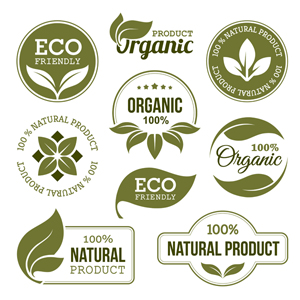I’m going to make a confession: products labeled “Natural” used to just call my name from store shelves and jump into my shopping cart: peanut butter, crackers, you name it. Given the choice, who wouldn’t rather eat something natural than, something well, unnatural (with the possible exception of “Flamin’ Hot® Cheetohs” Just kidding!)? The only problem is I was never sure exactly what distinguished “natural” foods from unnatural foods. Not to mention that it’s a little unsettling to consider that snake venom, nightshade, and amanita mushrooms (some of the deadliest toxins in the world) are natural too!
A lot of folks I work with tell me they want to improve their diets by eating more natural products. Yet when I ask them to describe what that would mean for their food choices, it’s pretty clear they expect me to supply the answer to that question. It’s quite apparent to me that the term conveys different meanings to different consumers: clean, pure, raw, free of additives, free of artificial substances, free of chemicals (I wish I had a nickel for every time I’ve heard someone preach against the evils of putting chemicals into our bodies, apparently unaware that our entire bodies are made up of…chemicals!) Some consumers assume the term, “natural” is synonymous with “organic.” Others, believe “natural” means free from ingredients from genetically modified organisms…
So when I tell people that the word, “natural” on food labels has virtually no legal and absolutely no scientific or nutritional meaning, they look at me like I have two heads. And frankly, it surprises me as well, because the words allowed on food labels, known as “nutrient claims” and “health claims,” usually must meet exceedingly strict requirements and have precise definitions (as I will discuss in a future posting). And now the Food and Drug Administration (FDA), the agency that regulates 80% of our food supply, wants to do something about this confusion, or at least they are asking for the public’s input as to whether they should do something about it.
Personally, as a nutritionist who bases my guidance on scientific evidence, I advocate strongly that the term, ‘natural” be banned from use on any food label. The biggest problems with the term, and the reasons I believe it needs to be banned from use, are two-fold.
First, given the vast variety of foods, no one definition of (or set of criteria for) “natural” could apply to all foods, not to mention the impossibility of enforcing a definition, given the fragmentation of food regulatory agencies and laws in the US. For example, the United States Department of Agriculture (USDA), a federal agency entirely separate from the FDA, which is responsible for regulating the contents and safety of fresh meat, poultry, and eggs, defines “NATURAL” (as applied to meat and poultry) as
At least this definition recognizes the multiplicity of meanings of the term!
The FDA regulates seafood, dairy products, and produce (fruits and vegetables), as well as all those foods that come in boxes and bags, the ones we tend to think of as “processed.” How does the FDA currently define “natural” foods? This is what the FDA says:
And all this time, you thought you were doing something clearly better for yourself and your family when you spent that extra time looking for natural alternatives and then spent the extra money, assuming you found the products!!!
And that brings me to my second reason for believing the FDA—and the USDA, while we’re on the subject—needs to eliminate use of the term, “natural.” No evidence exists that consuming “natural” foods, by any definition or criterion, is associated with any improvement in the health of individuals or populations who consume the products that fit the definition and carry the label. If some aspect of food naturalness were really associated with some health benefit, I’d be the first to advocate that the FDA or USDA allow the label to be used in that specific case and implement widespread public education.
Only one group is clearly benefiting from natural products: Food manufacturers who slap the word “natural” on their labels command higher prices for those products and improve their profit margin. Use of the term, “natural,” is simply a marketing ploy, and in the absence of any evidence that these products improve health, the “natural” label is really a kind of false advertising.
Do I think use or non-use of the term, “natural” has the potential to cause acute illness or danger? Probably not. For example, I’ve seen no evidence that consumers with food allergies or those making purchases for individuals with food allergies believe that a product labeled “natural,” must be free of any possible allergens…
Rather, I just think it’s time for the government food agencies to make food shoppers’ jobs a little easier and less confusing and to keep food manufacturers from reaping undeserved profits by simply eliminating a vague, meaningless term from food labels. Then consumers can take the money they’ve saved and buy more fruits and vegetables, which I think would fit anyone’s definition of “natural” foods. If you want to weigh in, feel free to click here and voice your opinion to the FDA!
